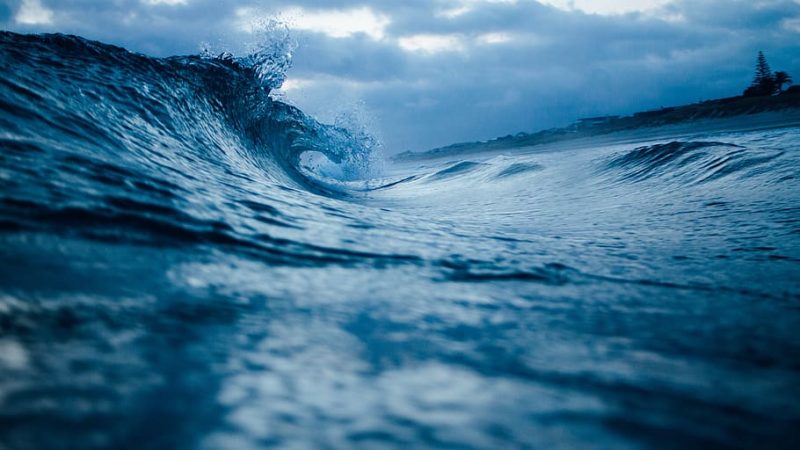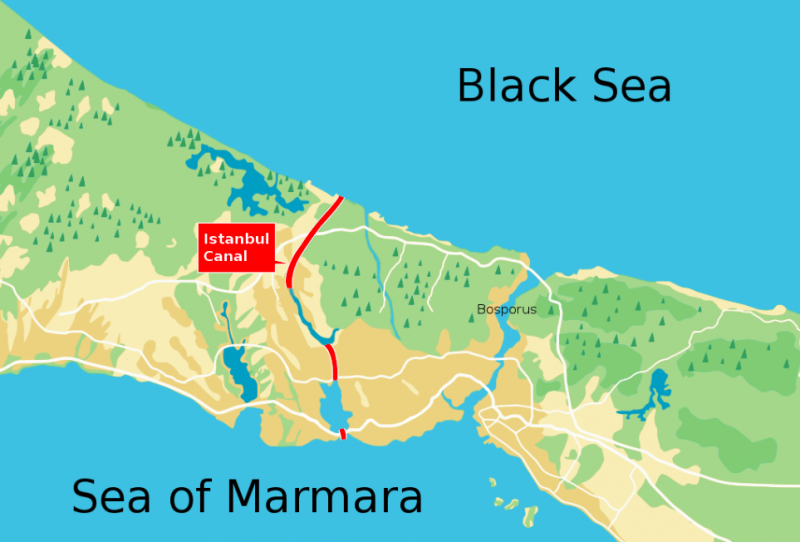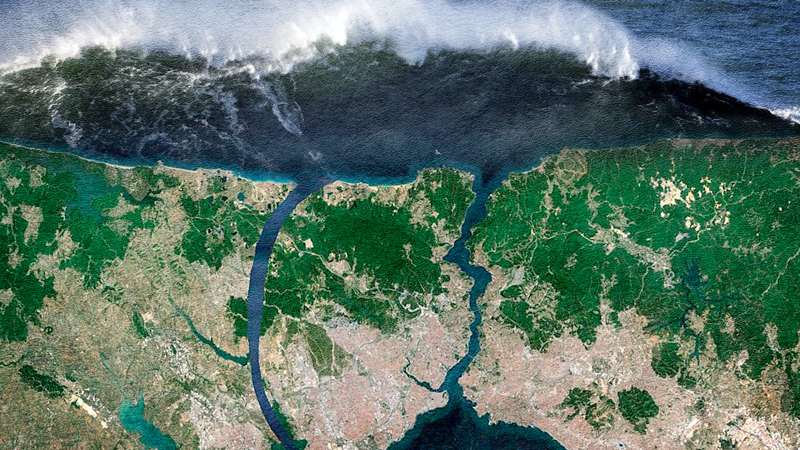Some experts have been saying that the Istanbul Canal will open the Montreux Convention up to debate, despite the government’s assurance that the Istanbul Canal and the 1936 agreement regarding Turkey’s ownership of the Turkish Straits are independent of each other. Retired Admiral Mustafa Ozbey has evaluated the Istanbul Canal’s correlation to the Montreux convention, and offered his opinions about how the Canal might affect it.
Ozbey believes that the Montreux agreement has already been opened up to debate by President Erdogan himself, adding that “while Turkey’s west, south and east are already in conflict and at risk, it is an act of strategic blindness to open the Black Sea to debate over the Istanbul Canal.”
The Istanbul Canal has already debated in the context of its damage to the environment, the ecological differences between the Black Sea and the Sea of Marmara, the route which the Canal will be built, security concerns and more. The biggest controversy around the Canal, however, is its correlation with the Montreux Straits Convention.
Ozbey suggests that there is a lot of disinformation spreading about the relationship between the Istanbul Canal and the Montreux Convention, and even worse, that this disinformation has been crafted intentionally by those who oppose the Canal. “If you notice, the supporters of the Canal are avoiding the Montreux debate as much as possible, whereas we are highlighting it specifically as the main issue. However, we are debating it in the wrong way, making it difficult to understand,” Ozbey said.
Ozbey stressed the importance of making the Canal-Montreux Convention correlation simple, understandable and clear, and has evaluated the relationship with anecdotes:
The convention assures our sovereignty
1. The Montreux Convention Regarding the Regime of the Turkish Straits, is one of the most important international conventions of the 20th century.
2. The Convention ensured that all the powers of the Straits Commission (established alongside the Treaty of Lausanne to regulate the transit of ships and our sovereign rights for the Turkish Straits Region) be given to Turkey.
3. The Convention’s verdicts include sovereign rights for Turkey far beyond the powers of the previous commission. The Convention also granted Turkey management of one of the most critical passageways in the world.

PxFuel
The application’s immunity
4. Turkey has fulfilled its authority and responsibility with such success during the Second World War and the Cold War eras, that an ‘unwritten immunity’ has been established for the convention.
5. In light of the Convention’s fair and successful implementation, the signatories did not even request any repeal/amendment, despite that the terms of the Convention expired 20 years ago.
6. With the statutes that were established in 1994 regulating the transit of merchant ships, Turkey clarified the principle of ‘freedom of passage.’ Turkey has used the arrangement to pressure the IMO to adopt new safety precautions through the Turkish Straits. With the other improvements it has implemented over time, Turkey has used its authority to improve both the navigation of transitions and the overall safety of the Turkish Straits.
Things can be accomplished without leaving the convention
7. Turkey should use its right and authority to make crossing through the straits safer without having to open a canal that will be extremely expensive and potentially cause an environmental disaster.
8. Experts believe that the canal could actually make crossings more dangerous.
9. The ‘free of crossings’ hypothesis, one of the justifications for the Canal, is also based on a misleading argument. Strait crossings are conducted in accordance with the verdicts of the convention. Increasing the income from crossings is also possible by staying within the Montreux Convention. The Convention is backed by the Gold Standard as a result of using the French Franc as its payment currency. In 1981, Turkey experienced a huge loss of revenue as a result of using the US Dollar as a currency instead of the Franc. By correcting this mistake, Turkey will be able to increase its income significantly.
False justifications
10. Charging a fee for Canal crossings is unlikely. This is essentially an imaginary justification for the construction of the Canal. Even if the Montreux Convention is ‘repealed’, it will not be possible for merchant ships to be diverted to another route.
11. As discussed earlier, the security and income of transit will not actually increase with the opening of the Canal.

By Randam – Own work. Adjusted from Kanal İstanbul.svg, CC BY-SA 4.0, https://commons.wikimedia.org/w/index.php?curid=84903496
US warships
12. In regard to warships using the Strait: although there have been some attempts to violate the agreement, countries have been found to be complying to the verdicts of the Convention. However, it is well known that the United States is not happy with the restrictions on the Black Sea and is striving to change things.
In this context, if the Canal is opened, technical debates such as those around the Dardanelles Canal, as well as debates over whether warships should be allowed to pass through the Canal or not, could prove dangerous.
13. Erdogan has made his first major mistake around the issue by inviting NATO to the Black Sea after the downing of the Russian jet in 2016. NATO exercises grew more frequent as a result.
The question is now unfortunately open to debate
14. Even if Turkey gives up on the idea of the Canal, the Convention has already been opened to debate by Erdogan. Although the United States is not even a party to this Convention, we can expect that it is preparing amendments for the passage of warships and its presence in the Black Sea, via Romania and/or Bulgaria.
15. While Turkey’s west, south and east are already in conflict and at risk, it is an act of strategic blindness to open the Black Sea to debate over the Istanbul Canal.
16. Russia is observing these debates very quietly and with diplomatic courtesy “for the time being.” However, Russia has stated that it considers the Montreux Convention, ‘sacred’. Thus, it will not actively involve itself in the debate until the last moment. Moscow will, however, monitor the formation of any new fault lines between the US and Turkey. It should also be kept in mind that if Russia sees concrete cooperation between the United States and Turkey, such as that which would inevitably result from violating the Montreux Convention, it will use all the cards it has to counter it.
Turkey should immediately end the fabricated ‘Canal Istanbul’ disgrace, and return to its former path.
————————————————-
Mustafa Ozbey started his career in 1965 as a naval officer Following his graduation from Turkish Naval Academy
Ozbey actively participated in the Cyprus Peace Operation in 1974 and Kardak Crisis.
In 1996, Ozbey served in various different warships as a department head, executive and commanding officer
He has also served as a destroyer division commodore and flag officer for various combatant squadrons .
Most recently, he was a chief of staff at Turkish Fleet HQ as rear admiral.
Ozbey has participated in advanced training programs both domestically and abroad, and worked in NATO Headquarters in Brussels between 1984 and 1987.
He retired in 2001 with the rank of Rear Admiral at his own request.


















Leave a Reply